Cholesterol plays a critical role in your body, but when levels—especially low-density lipoprotein (LDL) or “bad” cholesterol—rise too high, it can spell trouble for your heart. Excess LDL cholesterol can stick to the walls of your arteries, creating plaques that narrow blood flow and increase your risk of heart attack and stroke. While genetics and lifestyle contribute to your cholesterol profile, diet is one of the most powerful tools you have to influence your heart health for the better.
Many foods that seem harmless—or even comforting—can quietly raise cholesterol levels to dangerous heights. Heavily processed meals, trans fats, and saturated fats lurk in everyday items, from buttery pastries to fast food burgers. These choices may be delicious in the short term, but they often come with long-term consequences for your cardiovascular system and overall health.
Knowing what to avoid is the first step toward building a cholesterol-conscious diet. By limiting or eliminating certain foods, you not only reduce LDL levels but can also help boost high-density lipoprotein (HDL), or “good” cholesterol. The following list outlines 14 of the worst culprits for cholesterol, explaining why each one poses a risk and how you can make smarter substitutions. Let’s explore what you should skip to protect your heart—and what to enjoy instead.
1. Processed Meats
Smoked and cured meats like bacon, salami, and hot dogs may be flavor-packed, but they’re also loaded with cholesterol-raising compounds. These meats often contain high levels of saturated fat, which contributes directly to elevated LDL levels. Sodium nitrates, used for preservation and color, can damage arteries and worsen cardiovascular health. Moreover, processed meats typically offer little fiber or nutritional value to counteract their harmful effects. Regular consumption has been linked to an increased risk of heart disease and even colorectal cancer. Opting for lean protein alternatives like chicken breast, turkey, or legumes can be a far healthier choice. Swapping out deli meat for fresh-prepared options can have a significant positive impact on your cholesterol levels.
2. Butter and Lard
While butter and lard might enhance flavor, they’re also rich sources of saturated fats that can disrupt cholesterol balance. Butter in particular is often used in cooking, baking, and spreading—making it a sneaky contributor to daily fat intake. Consuming these fats causes your liver to produce more cholesterol, which can accumulate in your arteries over time. Lard, commonly used in traditional recipes, is equally problematic for cardiovascular health. Health experts suggest that plant-based oils like olive or avocado oil are better options due to their monounsaturated fat content. Even substituting a portion of the butter in baking with unsweetened applesauce can help reduce cholesterol intake. Being conscious of fat sources in everyday meals is essential to protecting your heart.
3. Fried Foods
Golden, crispy, and irresistibly crunchy, fried foods are among the biggest offenders for heart health. Frying often involves hydrogenated oils that contain trans fats—substances known to raise LDL and lower HDL. Frequent consumption of fried snacks like onion rings, fried chicken, or fries can drastically increase your cholesterol levels. Additionally, these foods are calorie-dense and nutrient-poor, often contributing to weight gain, which further harms cholesterol balance. Even air-fried alternatives can be questionable if heavily salted or coated in unhealthy batter. Instead, try baking or grilling your meals, which significantly cuts down on harmful fats. Making these swaps not only supports your cholesterol profile but enhances overall wellness.
4. Full-Fat Dairy
Creamy cheeses, whole milk, and rich ice creams are staples in many diets, but they come at a cost to your cholesterol. These dairy items are typically high in both saturated fat and dietary cholesterol, creating a double threat to arterial health. When eaten regularly, they can cause LDL levels to rise and HDL levels to fall. Though they may offer calcium and protein, their negative impact on cholesterol overshadows these benefits when consumed excessively. Switching to low-fat or non-dairy alternatives such as almond or oat milk can make a noticeable difference. Greek yogurt and part-skim cheese are healthier options that still provide flavor and nutrition. Over time, even small dietary changes like this add up in significant ways.
5. Baked Goods with Trans Fats
Store-bought pastries, pies, and cookies often contain trans fats that wreak havoc on your cholesterol numbers. These industrial fats are created during hydrogenation to extend shelf life but come with serious health consequences. Trans fats increase LDL while reducing HDL, making them particularly harmful to cardiovascular function. Because labeling laws allow small amounts of trans fat per serving, it’s easy to consume more than you think. Homemade versions with whole ingredients allow better control over fat content. Look for “partially hydrogenated oils” in ingredient lists and steer clear of products that contain them. Choosing fresh fruit or dark chocolate instead can satisfy your sweet tooth without sabotaging your health.
6. Fast Food
Drive-thru meals offer convenience, but they’re also a fast track to high cholesterol. Items like cheeseburgers, chicken nuggets, and milkshakes are often made with cheap oils and fatty cuts of meat. These foods are typically loaded with saturated fats, trans fats, and sodium—all of which are harmful in large amounts. Portion sizes in fast food meals often exceed recommended daily intakes, making moderation difficult. Many items also contain hidden sugars and preservatives that increase systemic inflammation. While occasional indulgence may be fine, frequent consumption can lead to long-term health consequences. Preparing meals at home allows you to control ingredients and focus on heart-healthy choices.
7. Pizza (Especially with Processed Meats)
Savory, cheesy, and comforting, pizza can be a cholesterol bomb, especially when topped with sausage or pepperoni. The combination of refined dough, full-fat cheese, and processed meats piles on saturated fat and sodium. These elements can elevate LDL cholesterol and increase blood pressure when eaten regularly. Even frozen or fast-food varieties often contain trans fats from low-quality oils. Vegetarian or homemade pizzas using whole wheat crust and plant-based toppings are healthier alternatives. Opting for thin crust and light cheese can also reduce the health impact of a pizza night. With mindful adjustments, pizza doesn’t have to be off-limits—it just needs a heart-smart makeover.
8. Chicken Skin
Although chicken itself is a lean protein, the skin transforms it into a saturated fat source. Crispy, seasoned chicken skin may be delicious, but it carries cholesterol-elevating risks. When cooked, the fat under the skin seeps into the meat, increasing its overall fat content. Removing the skin before cooking is a simple but powerful way to cut down on cholesterol intake. Roasted or grilled skinless chicken remains flavorful, especially when seasoned with herbs and spices. If you’re buying pre-cooked poultry, opt for rotisserie options without added butter or oils. Conscious preparation choices make all the difference when managing heart health.
9. Microwave Popcorn with Butter Flavoring
Microwave popcorn often seems like a quick, harmless snack—but flavored versions can contain unhealthy oils and trans fats. Butter-flavored popcorn is frequently made with partially hydrogenated oils, a major contributor to high LDL cholesterol. Some varieties also include artificial flavoring agents that may harm metabolic health. Air-popped popcorn or versions made with olive oil are better options that retain crunch without added risk. Look out for sodium as well, since many popcorn products are overly salty. Nutritional yeast or light herbs can offer flavor without compromising heart health. Choosing popcorn wisely allows you to snack without guilt or danger.
10. Cream-Based Sauces and Dressings
Thick sauces like Alfredo or ranch may elevate a dish’s flavor, but they can also spike your cholesterol. These creamy additions are typically made with butter, cream, cheese, or egg yolks—all high in saturated fat. Even a modest serving can contain more than half of your daily fat allowance. Bottled salad dressings are particularly deceptive, often combining oils, sugars, and stabilizers. Healthier dressings made with olive oil, lemon juice, or vinegar offer flavor without the fat load. Using hummus or mashed avocado as a creamy substitute is also a creative option. Rethinking condiments is an easy way to reduce hidden fat intake.
11. Fatty Red Meats
Cuts like ribeye steak, lamb chops, and pork ribs are marbled with saturated fats that raise LDL cholesterol. While red meat can offer iron and protein, excessive intake increases heart disease risk. The visible fat in these cuts contributes to arterial plaque formation when consumed frequently. Trimming fat or choosing leaner cuts like sirloin or tenderloin helps reduce the damage. Grilling or baking instead of frying is another effective strategy. Plant-based proteins like beans, lentils, or tofu are excellent substitutes for meat in many recipes. Reducing red meat doesn’t mean sacrificing taste—it’s about enhancing longevity.
12. Coconut and Palm Oil
Often marketed as health foods, coconut and palm oils are surprisingly high in saturated fats. These tropical oils can raise LDL cholesterol despite being natural and plant-based. Coconut oil contains more saturated fat per tablespoon than butter, which can strain your heart over time. Many snack bars and vegan baked goods contain these oils as a flavor enhancer. While occasional use is unlikely to harm, regular consumption may cancel out other healthy choices. Unsaturated oils like canola, flaxseed, or avocado are better for daily cooking. Understanding the fat content in “trendy” oils is key to smart nutrition.
13. Canned Soups and Instant Noodles
Convenience comes at a cost when it comes to packaged meals like instant noodles and canned soups. These foods often rely on added fats and excessive sodium for taste and preservation. Many also contain MSG and additives that can affect heart rhythm and metabolism. Some varieties include small amounts of trans fat that add up over time. Always check labels for saturated fat and sodium content before purchasing. Choosing low-sodium, homemade versions gives you control over ingredients. You can enjoy warmth and flavor without the hidden cholesterol traps.
14. Snack Foods and Chips
From potato chips to cheesy puffs, processed snack foods are notorious for their unhealthy fat content. These snacks are often deep-fried and heavily salted, making them a triple threat to your heart. Trans fats and saturated oils used in production drive LDL cholesterol higher with each handful. Even baked versions may contain hidden oils or additives that aren’t heart-friendly. Whole grain crackers, unsalted nuts, or sliced veggies offer better alternatives for crunch cravings. Portion control also matters—many snack bags contain more than a single serving. Staying mindful of ingredients can help transform snack time into a cholesterol-conscious habit.
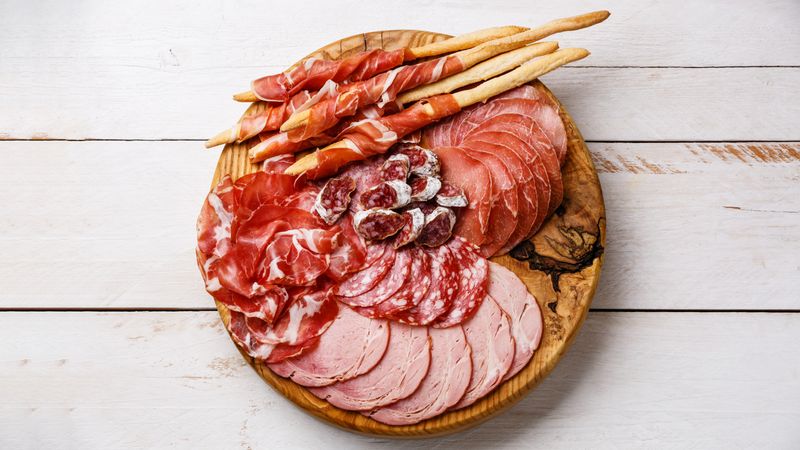
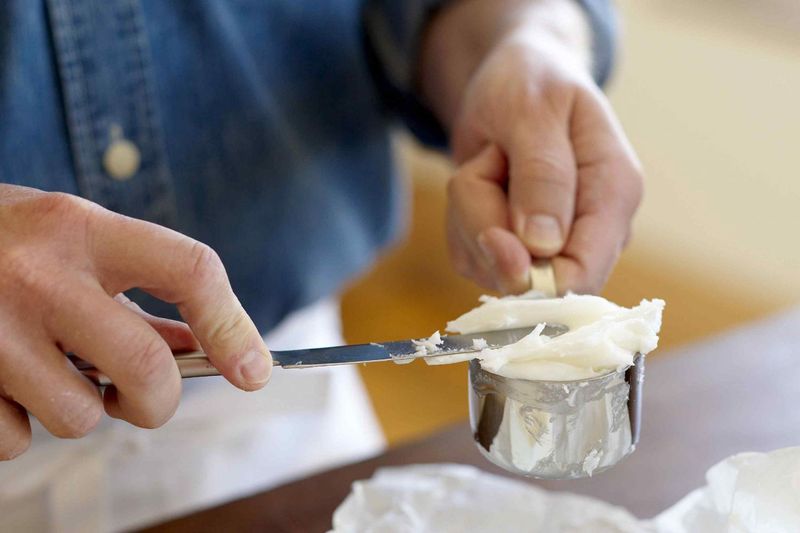
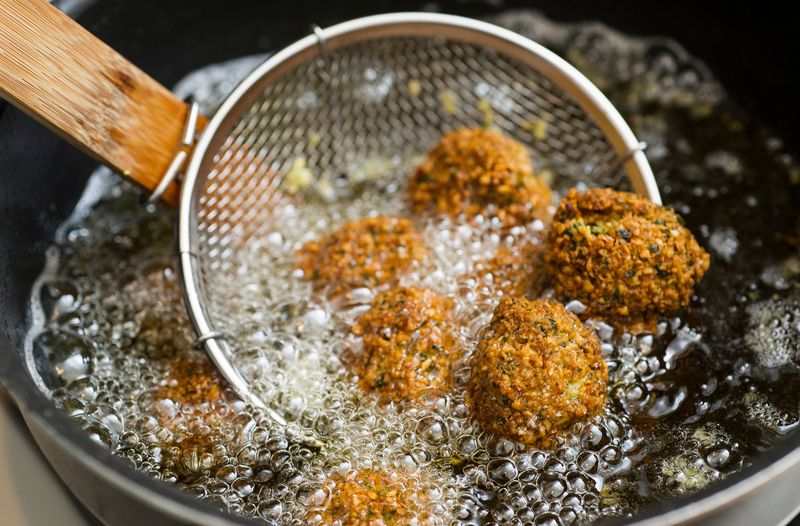
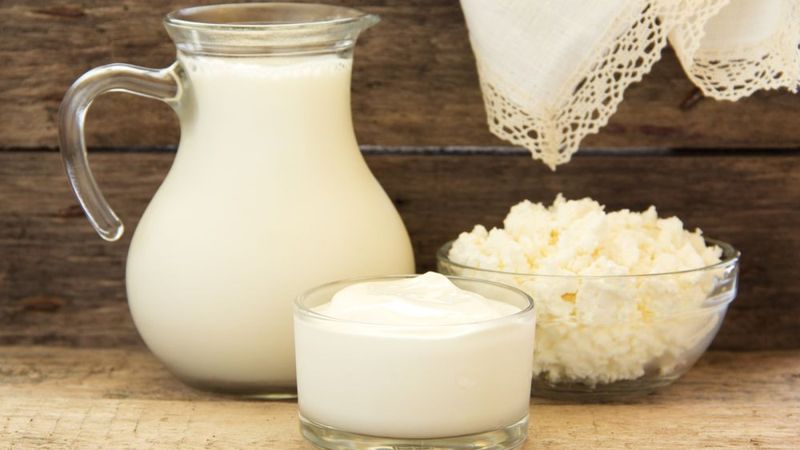
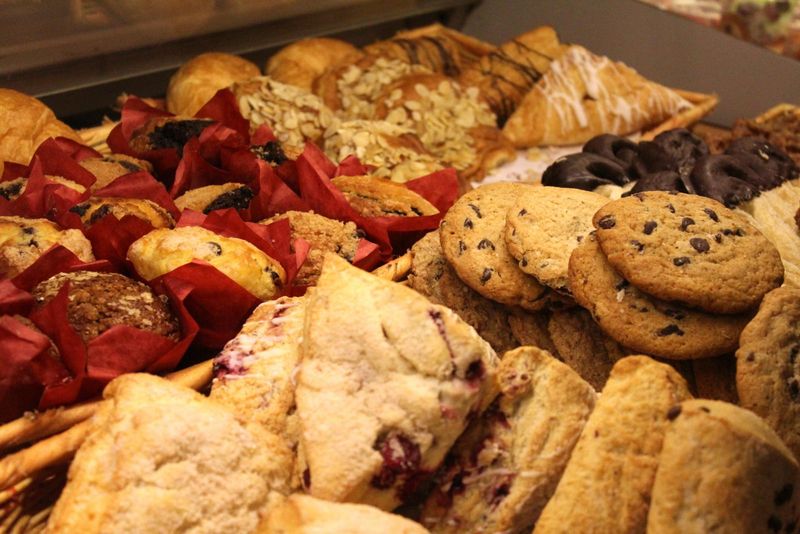
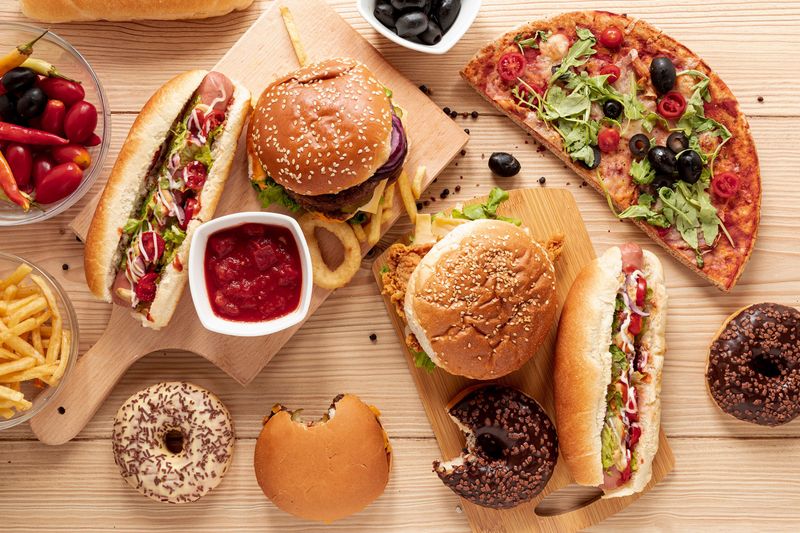
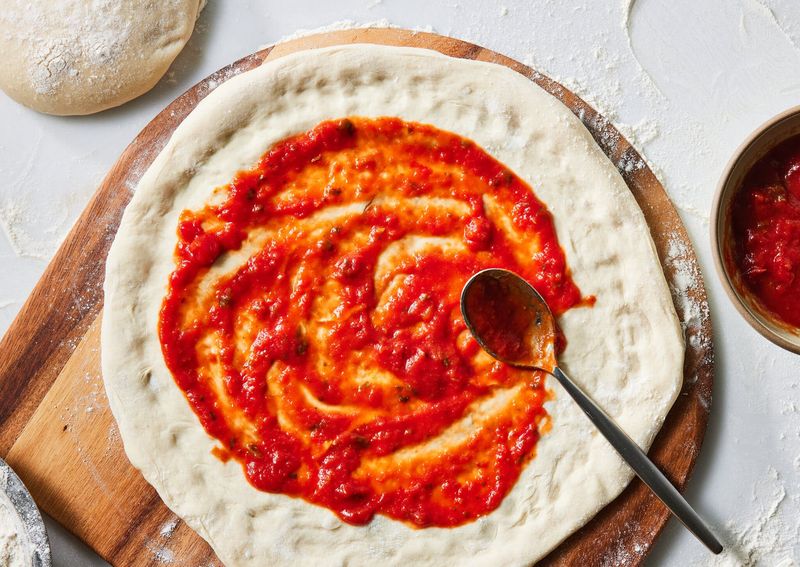
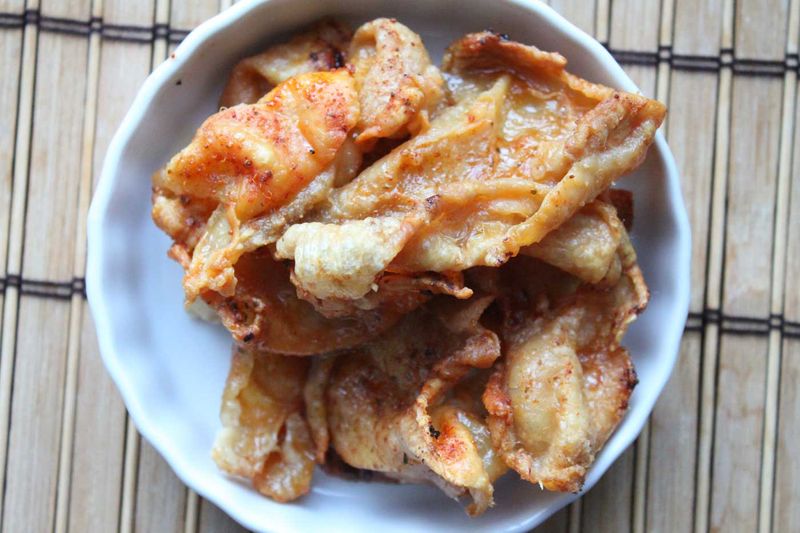
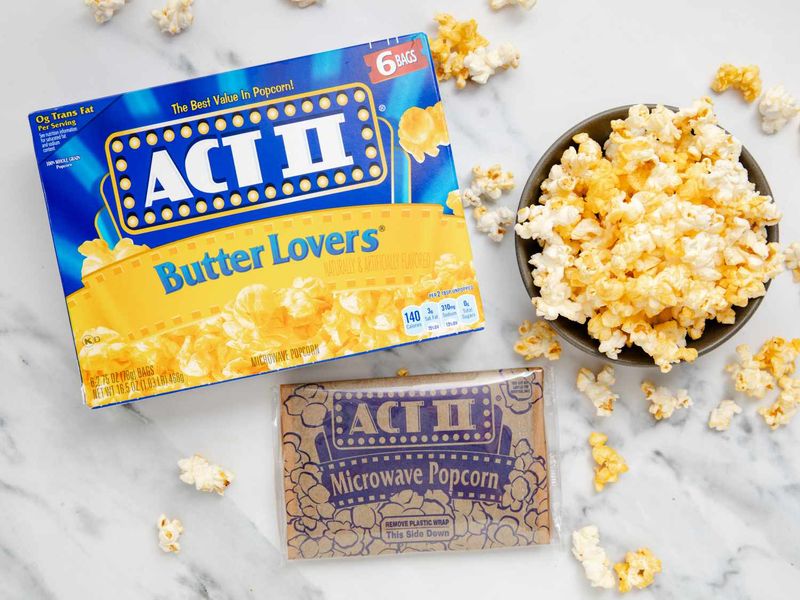
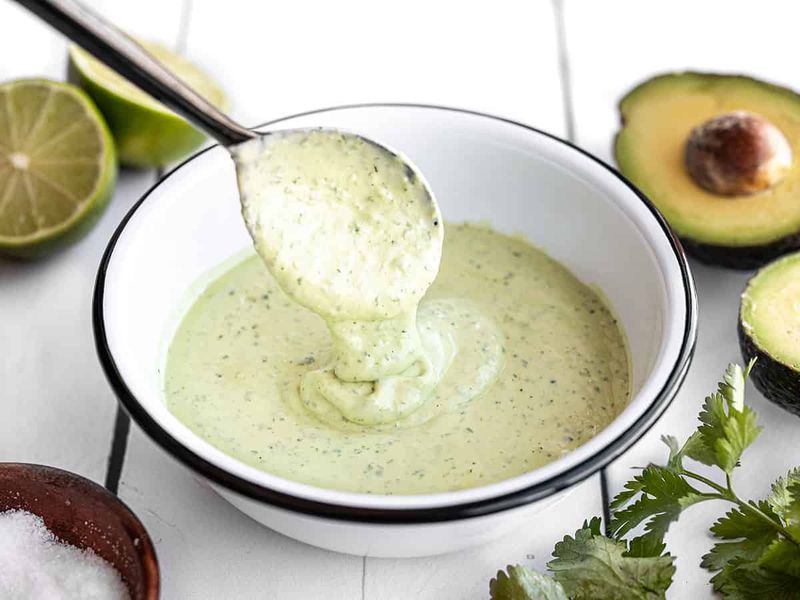
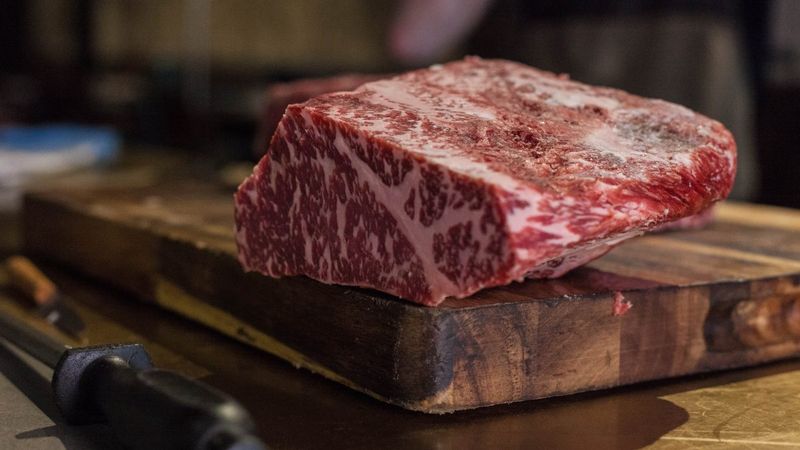
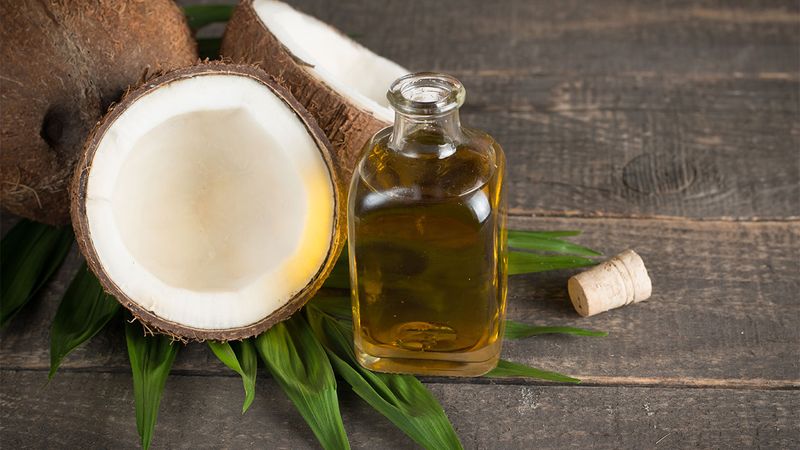

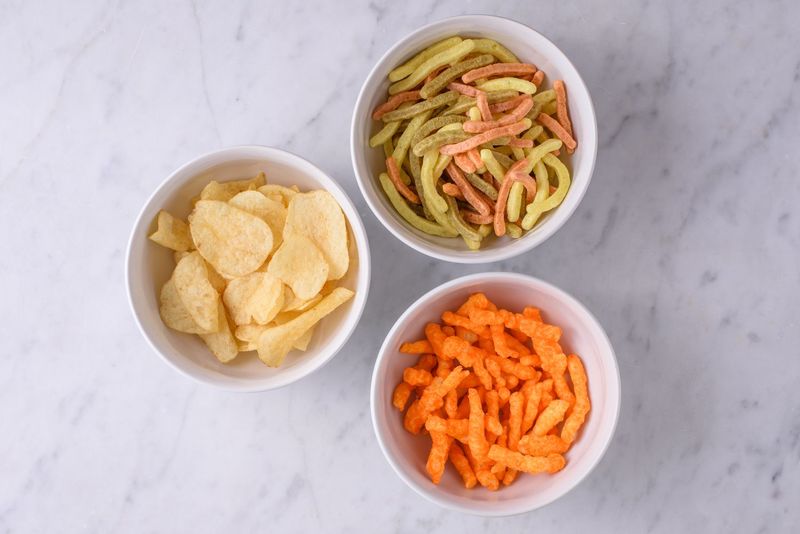
Leave a comment